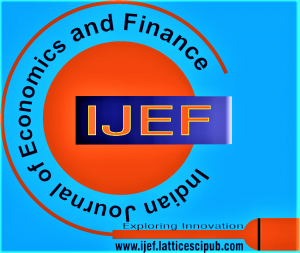![]()
Driving Sustainability: Exploring the Circular Economy and Waste Management in India
Mrinal Gaurav1, CMA Quiser Aman2
1Dr. Mrinal Gaurav, Department of Commerce, University of Yogoda Satsanga Mahavidyalaya, Ranchi, (Jharkhand) India.
2CMA Quiser Aman, Department of Commerce and Business Management, Ranchi University, Ranchi (Jharkhand) India.
Manuscript received on 01 October 2021 | Revised Manuscript received on 12 October 2021 | Manuscript Accepted on 15 November 2021 | Manuscript published on 30 November 2021 | PP: 53-60 | Volume-1 Issue-2, November 2021 | Retrieval Number: 100.1/ijef.E167710050124 | DOI: 10.54105/ijef.E1677.01021121
Open Access | Ethics and Policies | Cite | Mendeley | Indexing and Abstracting
© The Authors. Published by Lattice Science Publication (LSP). This is an open-access article under the CC-BY-NC-ND license (http://creativecommons.org/licenses/by-nc-nd/4.0/)
Abstract: This research paper focuses on driving sustainability in India through an exploration of the circular economy and effective waste management. With India’s rapid economic growth and urbanization, sustainable practices are imperative to tackle environmental challenges. The paper provides an analysis of the current waste management situation in the country and shedding light on global circular economy practices. Emphasizing the need for change, the study investigates the potential of transitioning to a circular economy, aiming to decouple economic growth from resource consumption and environmental degradation. Within the context of India, various circular economy initiatives are examined, encompassing government policies, industry-driven approaches, and successful case studies. These initiatives highlight how waste reduction and recycling can be promoted to foster a circular economy. Additionally, the paper delves into the socio-economic impacts of embracing circular economy principles, showcasing benefits such as environmental preservation, job creation, and improved public health. By leveraging secondary data, the paper can present a thorough analysis and examination of the topic, drawing from a wide range of credible and authoritative sources. The use of secondary data allows for a broader perspective and a more comprehensive overview of the subject matter, enabling the research to highlight trends, patterns, and best practices in circular economy and waste management.
Keywords: Circular Economy, Waste Management, Socio-economic impact.
Scope of the Article: Economics
